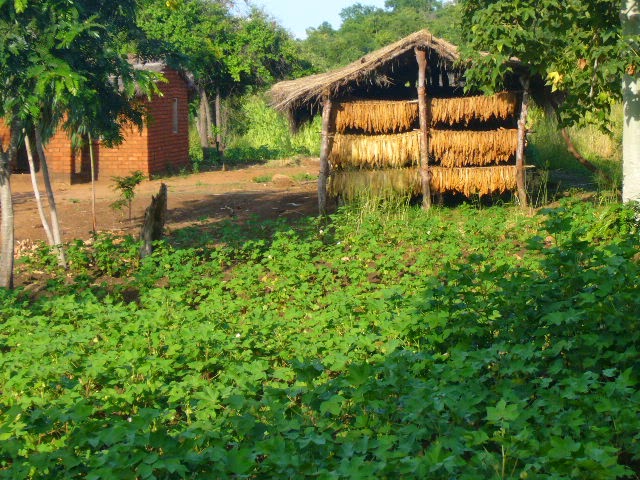The cow peas, a small ground cover legume, were the first to ripen. The pods dry to a biscuit colour on the plants and are plucked by hand into a sack then weighed on a balance scale suspended from a tree. The pods are spread on a tarpaulin, threshed with sticks, winnowed and graded by hand.
The seeds are stored for next year's season when they are tested for germination, moisture and purity.
.JPG) |
| Picking |
 |
| Weighing |
 |
| Threshing |
 | ||
| Storage |
Funwe Seed crops are now mature and we run open field days showing off trial plots, these are opportunities for learning, networking and socialising.
 |
| Maize trial |
 |
| Sales patter! |
2015 Malawians
Hair extensions in all colours are fashionable at present, this is Masozi, her name translated means tears, some other meaningful names are Njala (hunger) Maliro (funeral), these were given in times of stress. Some joyful names include Hallelujah, the verger, Kupatsa (the giver) our banker, Precious Innocent and Gift.
Jonny and Jody will be here next week, they will enjoy the warmth of the weather and the Malawi people. Terri will travel back to UK with them for a couple of weeks.
We understand that UK weather is improving and this time next month the General Election will be over.
T&I











































